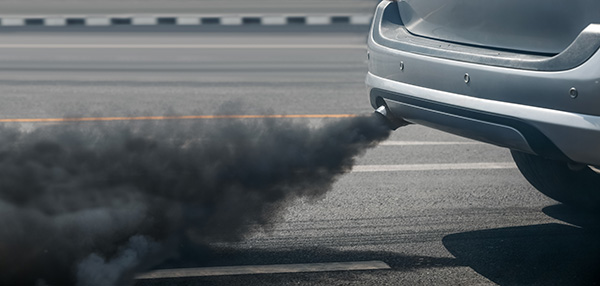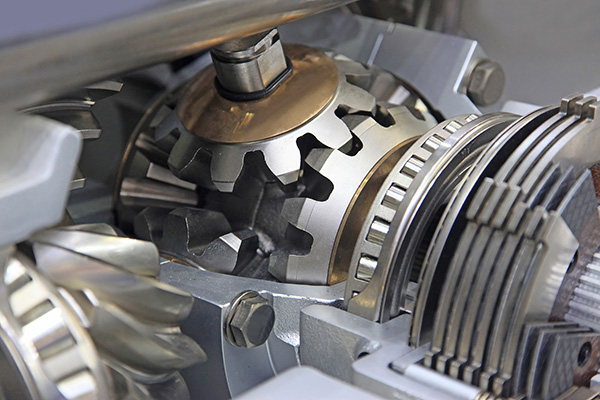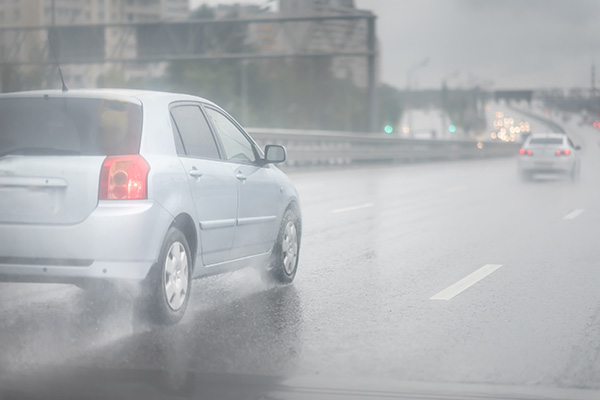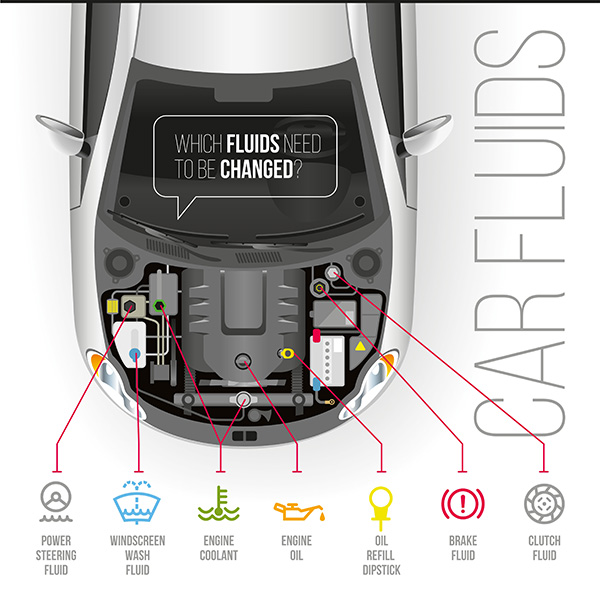Posted on 3/28/2025

Seeing smoke coming from your exhaust can be unsettling. While a little vapor on a cold morning is normal, constant or heavy smoke is often your car’s way of telling you something’s wrong. The color, thickness, and smell of the smoke can all offer clues about what’s going on under the hood—and some issues are more serious than others. So how do you know when exhaust smoke is a red flag? And what might be causing it? Let’s break it down. White Smoke Thin white smoke that disappears quickly after starting your car—especially on cool mornings—is usually just water vapor. That’s a normal byproduct of condensation in the exhaust system and nothing to worry about. But if the white smoke is thick, continuous, and doesn’t go away, that’s a different story. It could mean coolant is leaking into the combustion chamber, often due to a blown head gasket or a cracked engine block. In this case, you might also notice o ... read more
Posted on 2/28/2025

Your car’s differential is a key part of the drivetrain, but most drivers don’t think about it until there’s a problem. No matter what type of vehicle you drive—rear-wheel, front-wheel, or all-wheel-drive—the differential ensures smooth handling, especially when turning. If it starts to wear out or fails, you’ll notice it in your car’s performance. So, how can you tell if something’s wrong before it turns into an expensive repair? What Does a Differential Do A differential allows your wheels to rotate at different speeds while turning. When a car moves in a straight line, both wheels on an axle spin at the same rate, however, when you turn, the wheels must rotate at different speeds—the outer wheel covers more distance than the inner wheel. The differential makes this possible by distributing engine power between the wheels, ensuring a smooth and controlled turn. Types of Differentials Different ... read more
Posted on 1/31/2025

Driving through heavy rain or over wet roads can be nerve-wracking, especially when your vehicle begins to hydroplane. Hydroplaning occurs when water builds up between your tires and the road, causing your car to lose traction. This can lead to a temporary loss of control, making it difficult to steer or brake effectively. Knowing how to respond during hydroplaning is essential for staying safe on the road. Let’s discuss what causes hydroplaning, how to prevent it, and most importantly, how to regain control if it happens to you. What Causes Hydroplaning Hydroplaning is more likely to occur when water covers the roadway, and your tires struggle to push it away fast enough. This often happens when you’re driving at high speeds, have worn tires, or encounter roads with poor drainage. Even light rain can create dangerous conditions, particularly if it mixes with oil or dirt already on the surface. Your tire tread plays a vital role in reducing the risk. Tir ... read more
Posted on 12/20/2024

We’ve all been there—juggling a busy schedule and trying to grab a bite while on the road. It’s convenient, but eating while driving is more than just multitasking; it’s a serious distraction that puts you, your passengers, and others at risk. Some foods are particularly hazardous because of the mess, coordination, or attention they demand. Let’s explore which foods pose the biggest threats behind the wheel and why you should think twice before eating on the go. Why Eating While Driving Is Risky Distracted driving is one of the leading causes of accidents in the U.S., and eating while driving is a significant contributor. It divides your attention into three areas: your hands (off the wheel), your eyes (off the road), and your mind (off driving). The National Highway Traffic Safety Administration (NHTSA) highlights that eating or drinking increases the likelihood of an accident by up to 80%. But not all foods are created equal. Some are ... read more
Posted on 11/29/2024

Noticing fluid pooling under your car can feel like a mystery waiting to be solved. Is it something minor, like condensation from your air conditioner, or a more serious issue, like a coolant or oil leak? While fluid leaks are common, ignoring them can lead to bigger problems. So, how do you figure out what’s leaking and what to do about it? Let’s unpack the clues to get to the bottom of those mysterious car fluid leaks. Why Your Car Is Leaking Fluid Every car uses various fluids to keep it running safely and efficiently. Over time, seals, hoses, and components can wear out, causing leaks. Factors like extreme temperatures, rough driving conditions, or aging parts can increase the likelihood of a leak. While not all leaks spell disaster, any unexpected puddle should be addressed promptly to avoid long-term damage. Identifying the Fluid One of the quickest ways to identify a leak is by looking at the fluid’s color, texture, and loc ... read more